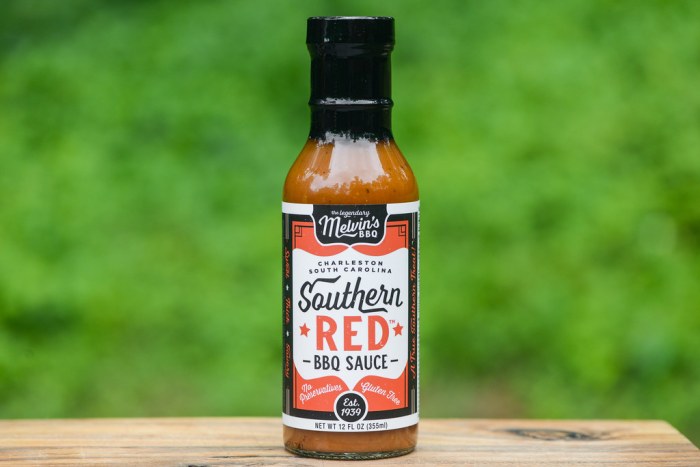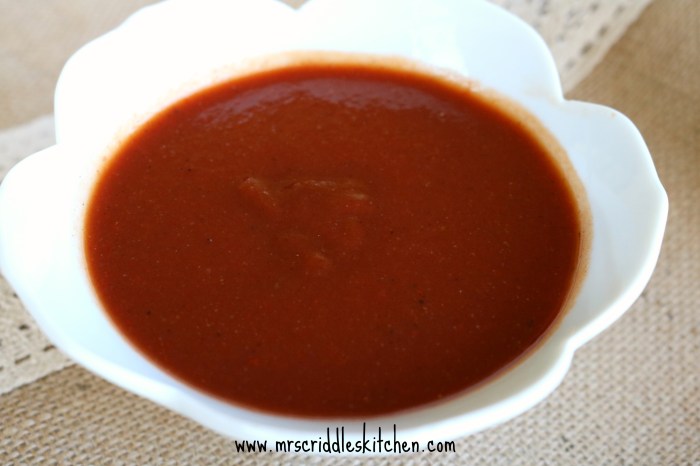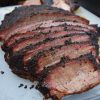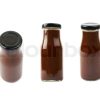Southern BBQ Sauce Recipe A Flavorful Guide
Southern BBQ Sauce: A Deep Dive: Southern Bbq Sauce Recipe
Southern bbq sauce recipe – Southern BBQ sauce, a cornerstone of American cuisine, boasts a rich history and diverse regional variations. Its characteristic tangy sweetness, often achieved through a complex interplay of vinegar, tomatoes, and spices, has captivated palates for generations. This exploration delves into the origins, key ingredients, diverse recipes, and serving suggestions of this iconic condiment.
Southern BBQ sauce recipes often feature a smoky depth, but sometimes a touch of sweetness is desired. For a unique twist, consider incorporating elements from a fantastic recipe sweet chili sauce , perhaps using its vibrant sweetness to complement the smoky notes. This can add a delightful complexity to your next batch of southern BBQ sauce, creating a truly memorable flavor profile.
Introduction to Southern BBQ Sauce

Source: staticflickr.com
The history of Southern BBQ sauce is deeply intertwined with the evolution of barbecue itself in the American South. Different regions developed unique styles, reflecting local ingredients and culinary traditions. For instance, the Carolinas are known for their vinegar-based sauces, while the Memphis region favors a tomato-based approach, and South Carolina boasts a unique mustard-based style. These regional variations highlight the adaptability and versatility of this versatile condiment.
A true Southern BBQ sauce is characterized by a balance of sweet and tangy flavors, often with a hint of smokiness. The precise balance varies depending on the specific recipe and regional style, but the underlying harmony of these key flavor notes remains consistent. The texture typically ranges from thin and pourable to thicker and more syrupy, depending on the thickening agent used.
The three primary types of Southern BBQ sauces are vinegar-based, tomato-based, and mustard-based. Vinegar-based sauces emphasize the sharp tang of vinegar, often apple cider or white vinegar, balanced by a touch of sweetness. Tomato-based sauces offer a richer, more robust flavor profile, thanks to the addition of tomatoes, often blended with other ingredients to enhance the flavor. Mustard-based sauces, prevalent in South Carolina, provide a unique, peppery, and tangy base, contrasting with the other two styles.
Ingredients and Their Roles

Source: mrscriddleskitchen.com
The common ingredients in Southern BBQ sauce recipes contribute distinct roles in shaping its overall flavor and texture. Vinegar provides the essential tang, while sweeteners like brown sugar or molasses add balance and depth. Tomatoes, when included, impart richness and body. Spices add complexity and heat, while thickening agents like cornstarch or flour help achieve the desired consistency.
Different vinegars impact the flavor profile significantly. Apple cider vinegar lends a subtly sweet and fruity note, while white vinegar offers a sharper, more acidic taste. The choice of vinegar depends on the desired balance of sweetness and acidity in the final product. For example, a vinegar-based sauce might use primarily apple cider vinegar for a milder taste, while a more assertive vinegar-based sauce could incorporate white vinegar for a sharper bite.
Spices play a crucial role in creating depth and complexity. They can add warmth, heat, or subtle aromatic notes. The careful selection and proportioning of spices are key to achieving a well-balanced and flavorful sauce.
| Spice | Heat Level | Flavor Profile | Typical Usage |
|---|---|---|---|
| Black Pepper | Low | Earthy, slightly spicy | Most BBQ sauces |
| Cayenne Pepper | Medium to High | Hot, pungent | Adds heat to tomato-based sauces |
| Paprika | Low | Smoky, sweet | Enhances color and flavor |
| Garlic Powder | Low | Savory, pungent | Adds depth and complexity |
Recipe Variations and Techniques
Three distinct Southern BBQ sauce recipes illustrate the variety within this culinary tradition. Each showcases a different primary flavor profile.
- Vinegar-Based Sauce: Emphasizes the sharp tang of vinegar, balanced by a touch of sweetness and spices.
- Tomato-Based Sauce: Offers a richer, more robust flavor profile, built upon a base of tomatoes and a blend of spices.
- Mustard-Based Sauce: Features a unique, peppery, and tangy base of mustard, complemented by vinegar and spices.
Here’s a step-by-step procedure for preparing a classic tomato-based Southern BBQ sauce:
- Sauté diced onions and garlic in butter until softened.
- Add ketchup, brown sugar, apple cider vinegar, Worcestershire sauce, and spices. Stir well.
- Bring to a simmer, then reduce heat and cook for 20-30 minutes, stirring occasionally, until thickened.
- Adjust seasoning to taste.
Thickening methods vary. Simmering reduces the sauce’s liquid content, resulting in a natural thickening. Adding cornstarch or flour creates a smoother, more consistent thickness. The choice depends on personal preference and desired texture.
Serving Suggestions and Pairings, Southern bbq sauce recipe
Southern BBQ sauce enhances a wide array of meats and dishes. Its versatility makes it a perfect accompaniment to various culinary creations.
| BBQ Sauce Type | Meat Pairing | Side Dish Pairing |
|---|---|---|
| Vinegar-Based | Pulled pork, chicken | Coleslaw, potato salad |
| Tomato-Based | Ribs, brisket | Mac and cheese, baked beans |
| Mustard-Based | Pork shoulder, sausage | Collard greens, hushpuppies |
A perfectly made Southern BBQ sauce should have a glossy sheen, a smooth or slightly textured consistency (depending on the recipe), and an appealing aroma that blends sweet, tangy, and smoky notes. The visual appeal, combined with its delicious flavor, makes it a culinary masterpiece.
Tips and Troubleshooting

Source: tasteofhome.com
Common mistakes include overcooking, leading to a burnt or overly thick sauce, or using too much of a single ingredient, disrupting the flavor balance. Solutions include careful monitoring of cooking time and temperature, and adjusting ingredient ratios to achieve the desired flavor profile.
Adjusting sweetness, spiciness, and tanginess involves modifying the amount of sugar, spices, and vinegar, respectively. Taste the sauce frequently during cooking and make adjustments as needed to achieve your preferred balance.
Store leftover BBQ sauce in an airtight container in the refrigerator for up to a week. Freezing extends its shelf life to several months. Proper storage preserves its quality and flavor.
Common Queries
Can I use bottled smoke flavoring instead of smoked paprika?
While smoked paprika provides a natural smoky flavor, liquid smoke can be substituted. Use it sparingly, as it can be overpowering. Start with a small amount and adjust to taste.
How long can I store leftover BBQ sauce?
Properly stored in an airtight container in the refrigerator, leftover BBQ sauce will typically last for 3-5 days. For longer storage, consider freezing it in airtight containers for up to 3 months.
What if my sauce is too thick or too thin?
If too thick, add a little water or vinegar to thin it out. If too thin, simmer the sauce uncovered for a longer period to reduce the liquid. You can also add a cornstarch slurry (1 tbsp cornstarch mixed with 2 tbsp cold water) to thicken it.
What type of meat is best for a vinegar-based BBQ sauce?
Vinegar-based sauces pair exceptionally well with pulled pork, chicken, and ribs, allowing the tangy flavor to cut through the richness of the meat.













